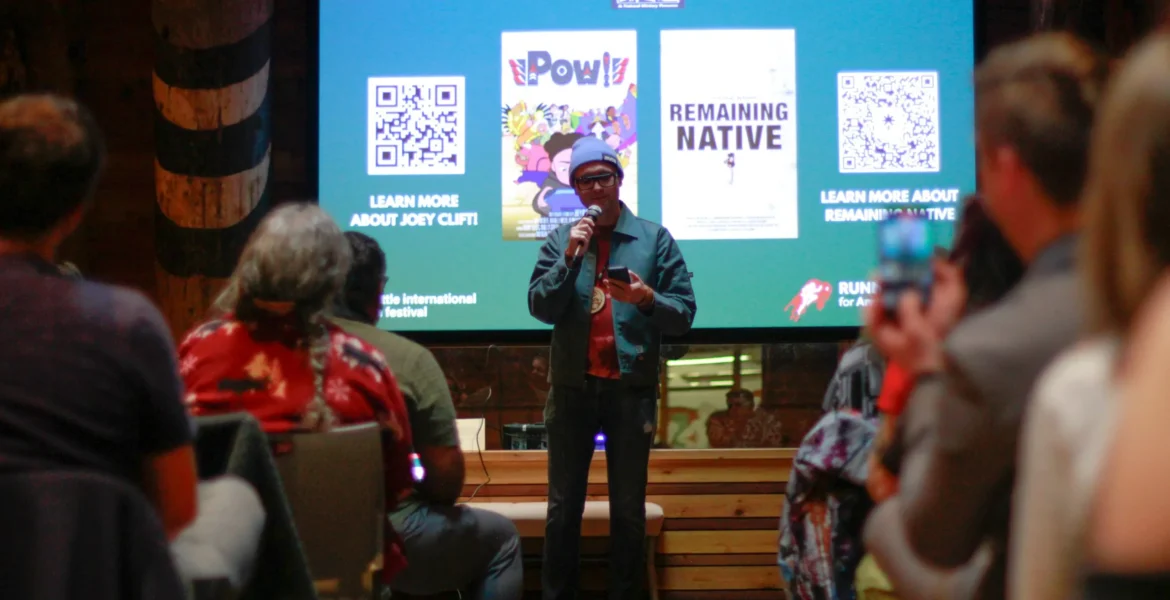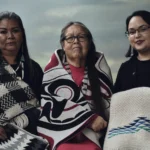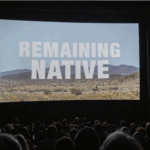Joey Clift’s new animated short film “Pow!” is a heartfelt tribute to his Tulalip community through the comedic journey of a Native kid trying to charge his video game console at a powwow.
The major lack of Native representation in film and comedy almost kept Joey Clift from pursuing his dreams as a kid. Fortunately, multiple professors in college encouraged Clift, Cowlitz Indian Tribe, to follow his interest in comedy, and is now playing an important role in creating authentic representations of Indigenous people in comedy and on television for the last 15 years.
“I think that for a lot of Native folks if you do not see yourself represented in media a certain way, you’re not going to feel like you have the permission to dream to be that thing,” Clift said.

As a television writer Clift has written for the Peabody Award-nominated and seven-time Emmy-nominated “Spirit Rangers” on Netflix, “Molly of Denali” and “Alma’s Way” on PBS, “New Looney Tunes” and “Lego Ninjago: Decoded” on Cartoon Network, and “Paw Patrol” on Nickelodeon. Clift created, directed, and wrote Gone Native and a Webby Award-winning Comedy Central Digital series. On May 16 during the Seattle International Film Festival he debuted “Pow!” at Hubulb Cultural Center on the Tulalip reservation.
A full circle moment for Clift was to return to the Tulalip reservation, and screen it in the place that inspired the film, and where he grew up, surrounded by family and friends. For Clift, “Pow!” is a personal love letter to the moments that shaped his understanding of Native identity, community, and cultural belonging. Growing up, he often found himself at powwows, reluctantly pulled away from his video games by his mom. Years later, during a formative internship with Northwest Indian News on PBS, he participated in Canoe Journey and other cultural events throughout the Pacific Northwest, meeting other Native people of all ages and hearing stories about culture, language, resilience, and what it really means to be part of a community.
“I spent a lot of those tribal events looking for places to charge my phone in various tribal centers in the Pacific Northwest,” Clift said. “I grew up not as a dancer. I didn’t grow up learning my Cowlitz language. So for me, there is a feeling of like, ‘Oh, can I be in a powwow space if my powwow dance moves are not good.’ Through talking to a lot of elders about that, I learned that it’s not if you are skilled in that kind of thing, showing up is the important part.”
At the heart of “Pow!” and especially central to the character of Grandma, who embodies that understanding of the complex relationship to culture. She is a woman who survived a boarding school in her youth and attempted cultural erasure, yet prioritizes showing up to support the next generation. For Clift, Grandma’s message to her grandson Jake is deeply personal: it doesn’t matter if you’re the best dancer or speak the language fluently; what matters is that you’re here, among your people.
“Our elders, their culture was taken from them,” Clift said. It’s this understanding that helped him understand the importance of powwows.

“I realized my mom was inviting me to powwows as a way to create an unbroken chain of Native folks fighting to preserve culture that was forcibly attempted to be taken from us. And when we frame it like that—of celebrating our culture as an act of cultural revolution—it’s the coolest thing ever. So I really wanted all of that to come across in Grandma’s monologue to Jake.”
Clift explained that even if you’re the kid sitting in the bleachers at a powwow playing video games, you’re still at the powwow, that is enough. But also try to jump up during the intertribal dance.
“Nobody is going to judge you, and if they do, they suck,” Clift said. “It’s the fact that you are doing it together as a family and as a tribe.”
Clift danced at his first powwow just two or three years ago. He planned to sit in the bleachers and watch and support friends and family that were dancing, when his girlfriend nudged him to dance.
“I knew that I wanted to but didn’t have the courage to do it but her just kind of nudging me made me feel like, ‘Oh yeah, I should do this,’” Clift said. “That was just such a wonderful moment to go up and dance with my people. And now anytime that I go to a powwow I’m going to jump on the floor. I’m not going to do good. People are going to make fun of me. I move like I’m made of spaghetti, but it’s something that brings me so much pride and joy to be able to do.”
With “Pow!” Clift set out to create something that’s still rare in animation: an authentic, joyful depiction of an intertribal powwow — specifically, a Coastal Salish powwow. Knowing the cultural significance of this undertaking, Clift assembled a team of Indigenous creatives and consultants to ensure every detail, from the dance steps to the woven cedar hats, was represented with care and accuracy.
“I think that it might be the first time, one of the first times that a powwow has ever been featured in an animated short, and specifically a Coastal Salish powwow,” Clift said.
To get there he brought on several consultants, including a men’s fancy dancer who provided footage for rotoscoping. Suzanne Donaldson, a respected Cowlitz culture keeper, helped ensure the Coastal Salish visual language, including the shapes of cedar hats, blankets, and other regalia, were true to tradition. Morgan Thompson, a Cherokee animator and character designer, was also instrumental in shaping the Cherokee aspects of the family at the heart of the story. With a family that’s Cherokee and Coastal Salish, the short becomes a layered exploration of intertribal identity.
“I just wanted to get the details right, because it’s important to tell our stories, but it’s also important to tell our stories the right way. I also would not live it down in my tribe if I got the shape of a cedar hat wrong,” Clift joked.

Without giving too much of the film away, it’s also important to note that Clift even included actual audio from the Standing Rock water protectors, the Fort Laramie Treaty image from the national archives, the Alcatraz Indian Occupations document and more.
In addition to being visually authentic, “Pow!” contributes to reshaping the space for Native creatives in animation and comedy. Clift grew up loving mainstream animated shows like “The Simpsons” but never seeing Indigenous people in those characters, so he deliberately built a “dream team” that balanced Native and non-Native talent to prove how well Native stories can thrive in animation. From Vera Starbard (Molly of Denali) to Chickasaw sound designer Jeff Carpenter and Native Hawaiian composer Jordan Kamalu, Clift’s collaborators for “Pow!” brought lived experience to every frame and note to make something as funny and heartfelt as a classic comedy show, but rooted in Native humor and reality.
As Native comedy continues to rise, Clift hopes “Pow!” will inspire the next generation of cartoonists, comedians, and creators.
“I’m seeing people advertise lineups of Native comedians in Tulsa where I don’t recognize a single name, and that’s awesome, because that means that there’s a full lineup of Native comedians in Tulsa who probably have started comedy in the past two years,” Clift said referring the positive impact broader representation has had from shows like “Reservation Dogs,” “Rutherford Falls,” and “Spirit Rangers” has built over the past six years.
With federal funding for PBS being cut, shows like “Molly of Denali” are being cancelled and “Spirit Rangers” is no longer creating new episodes, yet Clift is undeterred, continuing to collaborate on projects like “Pow!” for the next generation.

“I want the next generation to still have that really great representation, to show them that they can be funny for a living,” Clift said. “It’s important for me, regardless of whether this is for a major streamer or not, to continue creating work, because who knows who’s going to see “Pow!” on the Tulalip Reservations and hopefully be inspired by that to realize that they could write cartoons for a living too.”
From crawling under bleachers looking for an outlet to charge his videogame, to later realizing the cultural revolution embedded in every gathering his mom brought him to, Clift’s journey to “Pow!” is a relatable reflection of Native joy and belonging.
“I hope that whoever sees it, that it’s funny, and I hope that it’s healing in some way, and people, regardless of who you are, that you see yourself in it,” Clift said.
According to Clift, the film is still being screened at film festivals and should be available online later this year.










